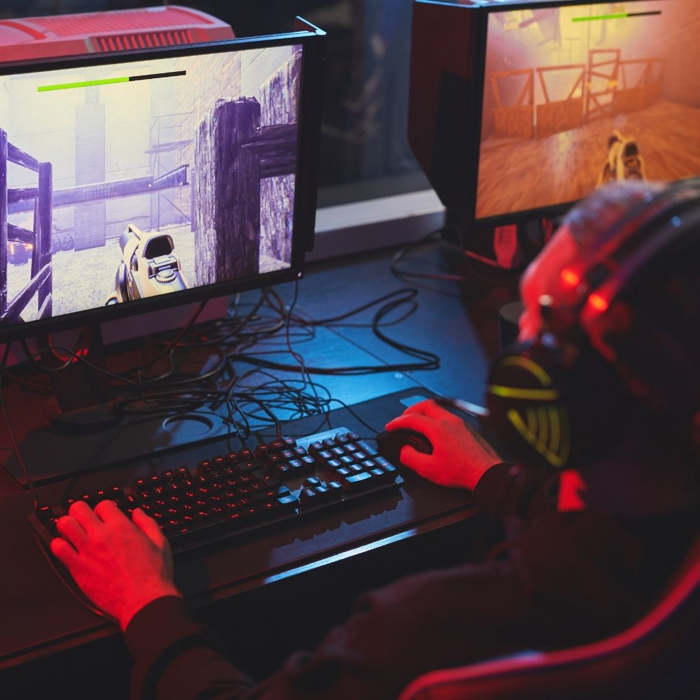
Excessive playing of video games can be dangerous for young people. Establishing a few rules is essential to protect them. Focus on the signs of this form of addiction, possible treatment and prevention solutions.
The public most susceptible to video game addiction
It is mainly young people who are exposed to video game addiction. However, cases of serious pathological addiction are quite rare. The greatest risk of addiction is with networked games, especially multi-player role-playing games. Addiction to video games is considered to exist when the player engages in this type of activity excessively, i.e. for 30 hours a week or more, which is much more than the time spent by hardcore gamers, i.e. between 18 and 20 hours a week.
Spotting a video game addiction
There are certain signs that should alert parents, as the symptoms of video game addiction are usually the same. For example, there is a sudden drop in school results, a lack of interest in any other type of activity, but also in social relationships (friends and family). Indeed, the practice of video games in the context of an addiction occupies most of the time, since the subject is unable to reduce the time he devotes to games. This is to the detriment of other activities that they used to be passionate about, such as sport, cinema, music, art or simply going out with friends. The young person tends to isolate himself and no longer wishes to leave his home.
When you notice changes in your child's behaviour, it is important to look for the cause. This may be completely unrelated to the passion for video games.
Video game addiction: the risks
There may be repercussions on sleep, as the addicted gamer tends to play even at night, thus shortening his or her rest time. Sometimes the addiction can also affect the diet.
A fragile person who is addicted to video games runs the risk of ending up sooner or later in a state of psychological suffering and great loneliness if no care is taken. The result is obvious malaise. In rare cases, a video game addict can become extremely sad or aggressive.
If nothing is done to enable him to break with his addiction, the young person is gradually exposed to failure at school and desocialisation. In the long term, he or she may lose self-esteem.
Video game addiction: the right response
As we have seen, video game addiction can have a significant impact on the mental and physical health of young pathological gamers, but it is still not very common. Reacting as soon as possible is essential to limit the impact of this addiction. The gambling addict cannot limit himself. On the other hand, parents must control the time spent gambling.
It is essential that they establish a dialogue with their child, during which video games must be discussed without taboos. This is a good way of taking an interest in this very topical phenomenon and showing your child that you share their interest. Above all, it is important to avoid power struggles.
A video game can be positive if it is perfectly adapted to the age of the child or teenager, and if the time devoted to it is reasonable. It should not interfere with family life, schooling, sleep and leisure time. It can also be an activity to be shared with the family. When young people play alone, it is advisable that the space reserved for video games is located in the areas of the house reserved for the whole family. In this way, the young person is not isolated in front of the screen and it is easier to limit the time spent on this activity.
Parents who are at a loss when faced with the onset of their child's addiction to video games can turn to their doctor. The young person can then be looked after by a psychologist specialising in addictive practices. This is useful if the young person is a pathological gamer, which is fortunately not very common. Moreover, addictive behaviour is much more common among adults than among young people. In any case, in the case of an extreme case, it is best to refer the young person to a specialist in adolescent and child behavioural problems.
Preventing addiction to video games requires the establishment of real but not drastic rules: there is no question of banning access to video games. Thirty to sixty minutes a day, depending on the age of the child or adolescent, is a perfectly reasonable and safe amount of time to play.
No hay comentarios:
Publicar un comentario